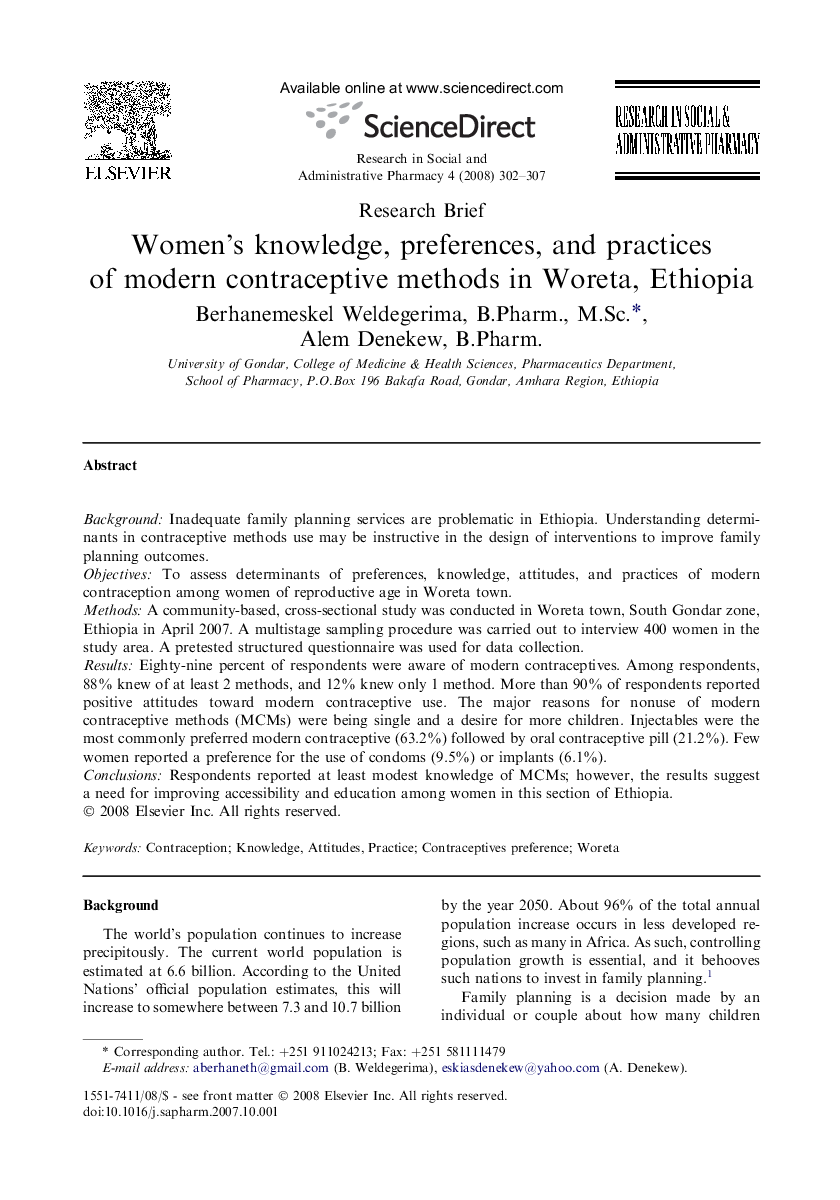| Article ID | Journal | Published Year | Pages | File Type |
|---|---|---|---|---|
| 2509164 | Research in Social and Administrative Pharmacy | 2008 | 6 Pages |
BackgroundInadequate family planning services are problematic in Ethiopia. Understanding determinants in contraceptive methods use may be instructive in the design of interventions to improve family planning outcomes.ObjectivesTo assess determinants of preferences, knowledge, attitudes, and practices of modern contraception among women of reproductive age in Woreta town.MethodsA community-based, cross-sectional study was conducted in Woreta town, South Gondar zone, Ethiopia in April 2007. A multistage sampling procedure was carried out to interview 400 women in the study area. A pretested structured questionnaire was used for data collection.ResultsEighty-nine percent of respondents were aware of modern contraceptives. Among respondents, 88% knew of at least 2 methods, and 12% knew only 1 method. More than 90% of respondents reported positive attitudes toward modern contraceptive use. The major reasons for nonuse of modern contraceptive methods (MCMs) were being single and a desire for more children. Injectables were the most commonly preferred modern contraceptive (63.2%) followed by oral contraceptive pill (21.2%). Few women reported a preference for the use of condoms (9.5%) or implants (6.1%).ConclusionsRespondents reported at least modest knowledge of MCMs; however, the results suggest a need for improving accessibility and education among women in this section of Ethiopia.
